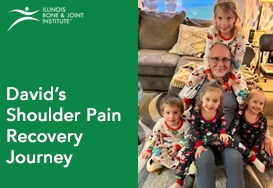Gout is actually a form of arthritis that commonly affects the big toe in men. It may cause a sudden burning pain in one of your joints, or stiffness and swelling in one or more joints. Attacks of gout can happen repeatedly unless it is treated. Eventually, gout attacks can cause long-term damage to your tendons, joints, and soft tissues.
Uric Acid Is The Cause
When there is an overabundance of uric acid in the blood it is called gout. Usually, having too much uric acid in the blood is not harmful. In fact many people with high levels in their blood never know about it. When uric acid levels in the blood become extremely high, the uric acid may start to form crystals. These crystals most commonly form in the joints, especially the joints in the big toe. Your odds of experiencing the pain of gout are higher if you are overweight, drink excessive amounts of alcohol, or have a diet that is comprised of meat and fish that are high in chemicals called purines.
Pain And Swelling Are Gouts Calling Cards
The most frequent signs of a gout attack are swelling, tenderness, redness, and a sharp pain in your big toe. These attacks are most common at night when you are sitting still and laying flat on your back. While gout usually manifests in the big toe, you may also experience gout attacks in your foot, ankle, or knees. The attacks can be short or long, anywhere from a few days to weeks and you may not have another attack may for months or years.
Leading A Gout Free Life
In order to avoid gout attacks, your gout physician may prescribe a medication to reduce the buildup of uric acid in your blood. In most cases patients take this medicine for their entire life, but there are things that you can do reduce the chances of needing a lifetime of medication. Pay special attention to what you eat. This can help you manage the buildup and uric acid and reduce the frequency and duration of your gout attacks. Eating appropriate amounts of a healthy variety of foods to keep your weight under control and to get the nutrition you need. Try to avoid frequent or daily meals consisting of meat, seafood, and alcohol. As always you should drink plenty of fluids, especially water.
Treating A Gout Attack
The methods of stopping an attack of gout can vary depending on the severity of pain. Your orthopedic physician may give you a shot of corticosteroids. They may also prescribe other types of medications that are specifically designed to treat gout. To ease the pain during a gout attack, rest the joint that hurts. Non-steroidal anti-inflammatory medicine may also be prescribed to help reduce the pain. The good news is that following treatment, relief from the pain and discomfort of a gout attack often begins within 24 hours. It is important to still schedule online with your orthopedic physician even if your pain from gout is gone. The buildup of uric acid that led to your gout attack can still harm your joints. An orthopedic physician will help you get relief from the pain of gout attacks and learn ways to prevent flare-ups in the future.
*This content is for information only and is not intended to replace the diagnosis, treatment, or medical advice from your treating healthcare professionals. The content does not provide medical advice, does not constitute the practice of medicine or other healthcare professional services, and does not create a doctor-patient relationship. You should not rely on this information as a substitute, nor does it replace professional medical advice, diagnosis, or treatment. If you have concerns or questions, seek the advice of your healthcare professionals. If you think you may have a medical emergency, call your doctor or 911 immediately. Do not rely on electronic communications or communicate through this website for immediate, urgent medical needs. This website is not designed to facilitate medical emergencies. The use of the information is at the reader’s own risk. The links are provided for information and convenience only. We cannot accept responsibility for the sites linked or the information found here. A link does not imply an endorsement of a site.




